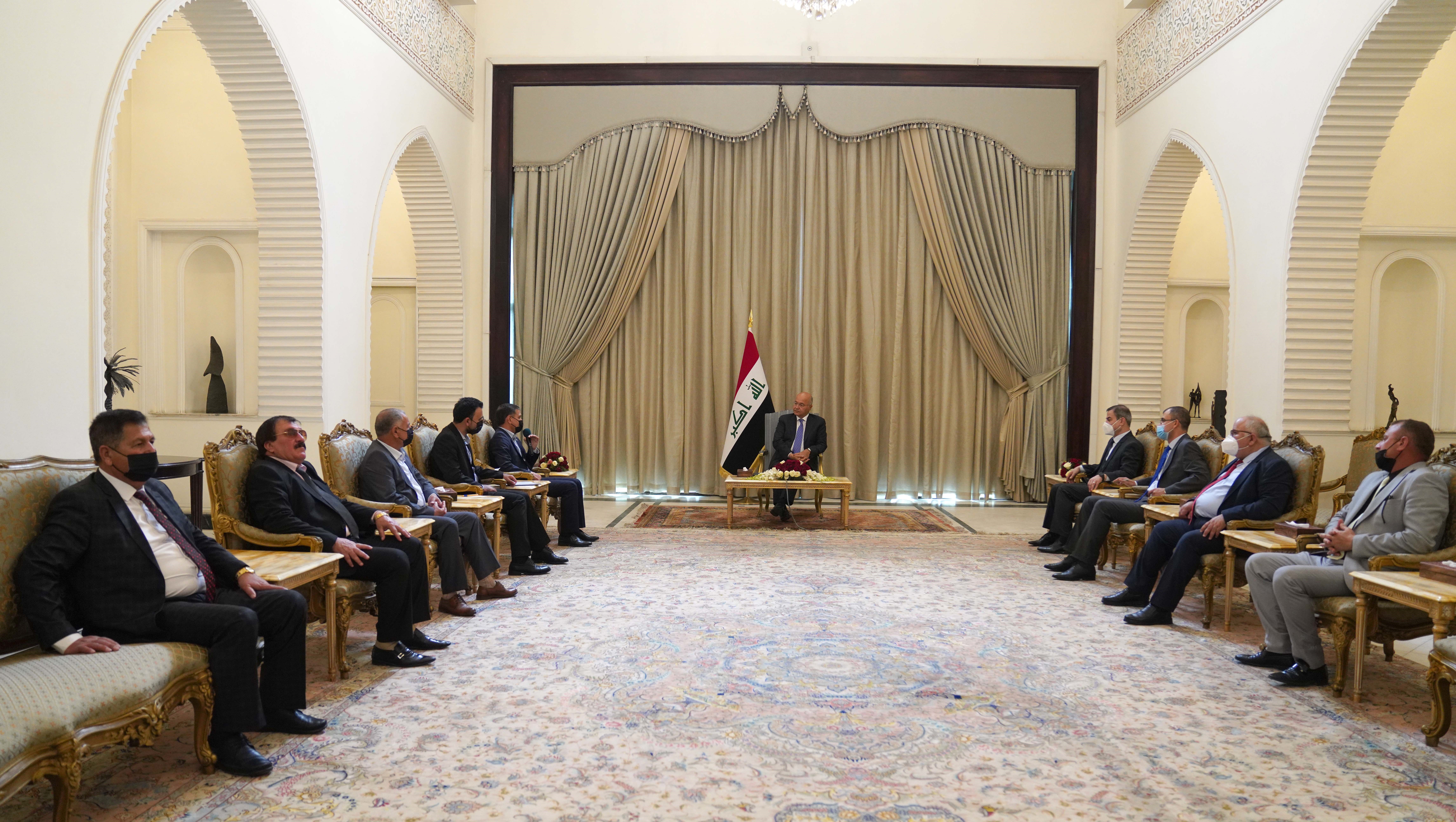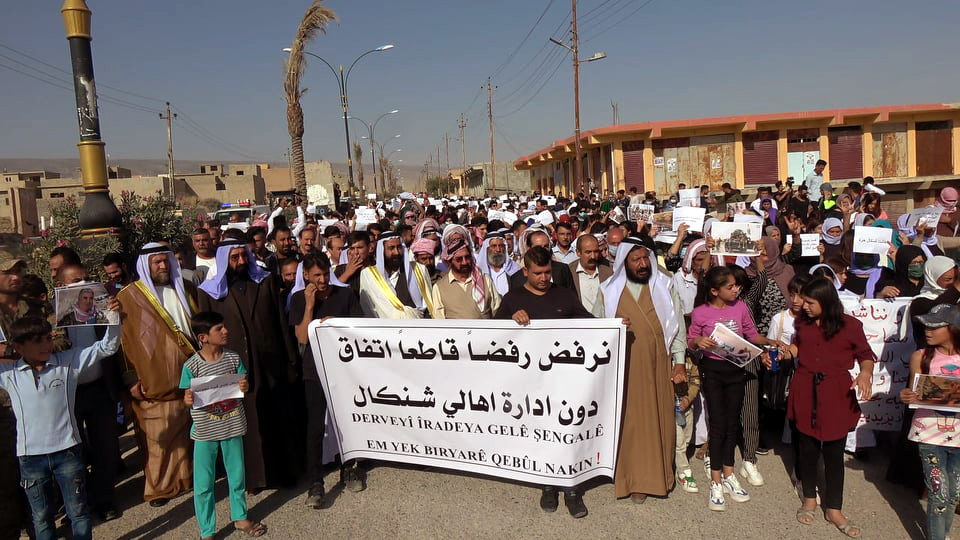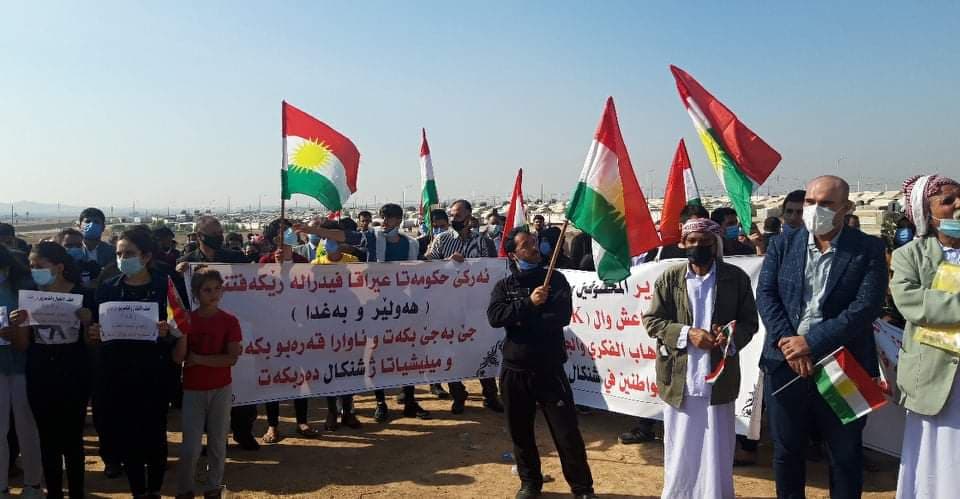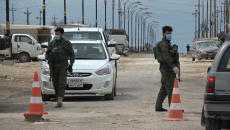A gathering by war-torn Ezidi community in Baghdad seeks implementation of a controversial security and administrative agreement between Baghdad and Erbil to normalize the complex and turbulent security scene in Shingal, where competing armed groups are based, through a new administration supported by newly formed police forces of local returnees.
The New Council of Ezidis, formed in 2020 by a group of political, religious and tribal figures of Shingal district, stepped up their efforts by visiting Baghdad and meeting Iraqi president, the United Nations UN and Iraqi senior officials.
Haidar Shasho, a founder and member of the New Council of Ezidis, accused Erbil and Baghdad of indifference in implementing Shingal agreement.
"Baghdad and Erbil have not spent serious efforts. It's just for the media and in meetings they claim they are trying yet on the ground no concrete results."
"Baghdad and Erbil have not spent serious efforts. It's just for the media and in meetings they claim they are trying yet on the ground no concrete results."
Shasho believes it’s the duty of the Iraqi government to oust illegitimate forces. "Administratively, it’s the KRG to appoint a mayor and a new administration.
Shasho was the senior official of Patriotic Union of Kurdistan PUK, one of the leading Kurdish parties forming Kurdistan regional Government KRG with the Kurdistan democratic Party KDP led by Masoud Barzani, former president of Iraqi Kurdistan region. PUK controlled disputed territories in Kirkuk and Diyala while KDP controlled those under Nineveh province.
He later joined forces close to Kurdistan Workers Party, PKK, a Kurdish party fighting Turkey with bases in Iraqi Kurdistan. The KDP accuses PKK of being exploited by pro-Iran Popular Mobilization Forces PMF Shiite militia funded by Baghdad. PKK accuses KDP of being dictated by Turkey.
The KDP managed to convince Shasho to join it yet he later quit KDP end of 2020.
Shasho, commander of the Ezidkhan Protection Forces, in December 2020 told KirkukNow that there has been a demand to form such an assembly since 2014 meant to function as a type of parliament for Ezidis in order to monitor the government’s functionality and convey the demands of Ezidis.
According to Shasho, the new assembly consists of 60 members, including 10-15 female candidates, so that each member represents five thousand citizens in Shingal.
When ISIS invaded Shingal in 2014, thousands of Peshmerga (Kurdish fighter) forces withdrew without resistance. Taking advantage of this security gap, the PKK moved into the Shingal and opened a safe corridor for people fleeing from ISIS by establishing a defense-line on Mount Shingal. The PKK was subsequently able to create a foothold there on the grounds that it was protecting Ezidis from ISIS. Soon after, the PKK established the Shingal Resistance Units (YBSh) and Shingal Women's Units (YJSh).

Baghdad, April 2021: Iraqi president Barham Salih, a Kurd, welcomed Ezidi Council delegation. Photo by Iraqi presidency media.
Iraqi president said in a statement following the meeting on April 7th, "political and administrative obstacles hinder the reparation of the victims and their families and organizing Shingal administration."
"Political rivalry should be put aside in favor of stability," he added.
"Political rivalry should be put aside in favor of stability," he added.
In the last few months, several meetings were held between active groups in Shingal with senior Iraqi officials to implement Shingal agreement yet all the efforts remained futile.
Shingal is divided between PKK and KDP. Locals accuse KDP of deserting them to face ISIS atrocities alone while the KDP seeks to retake its power in the region it has run for years by cooperation with Baghdad which in turn aims at deploying Iraqi forces to replace Shiite militias.
Many Shingalis took the streets several times to protest Baghdad-Erbil efforts to oust pro-PKK groups from Shingal region.

Nineveh 2020: demonstrators protest Baghdad-Erbil agreement. Photo by KirkukNow.
In 2104, when the so-called Islamic State fighters took control of significant territories of the north, committing atrocity crimes including genocidal acts against the Ezidi minority, centered around their centuries-old ancestral home of Shingal.
Over 3,000 Ezidi women, girls and children were freed while nearly 3,000 kidnapped women and girls are still missing after many were trafficked and enslaved in other parts of former IS territory.
Since the military defeat of IS, discord over security arrangements, public services, and the lack of a unified administration, have plagued victims and survivors.
The council Shasho represents seeks solution for return of the IDPS, sorting out multi-administration issue of Shingal and reconstruction, all addressed by the accord.
"All Iraqi officials we met showed their support yet in reality not satisfying steps has been taken," he added.
"We will not give up and will do regular follow up for implementation of all articles of the agreement. Every day of delay cases damage to Shingal issue and its IDPs," he added.
"We will not give up and will do regular follow up for implementation of all articles of the agreement. Every day of delay cases damage to Shingal issue and its IDPs," he added.
The agreement includes understandings to withdraw all armed groups from the area, restore the local administration, appoint a new mayor, reconstruction and supply of basic public services in order to pave the way for volunteer return of thousands of Ezidi IDPs living in tens of IDP camps in Kurdistan region.
The United Nations assistance mission for Iraq UNAMI praised the deal as an important step in the right direction and urged for quick implementation.
Pro-PKK groups reject to leave downtown of Shingal for local police and the outskirts including Shingal Mountain for Iraqi security forces.
Shingal district of Nineveh and Sheikhan district in Erbil are homes for hundred thousands of Ezidi religious minority targeted by extremist Jihadist accused of being defectors.






